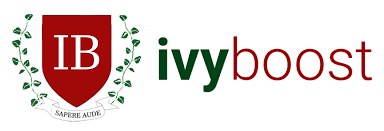Redesign of the SAT
the College Board is redesigning the SAT to focus on the few things that evidence show matter most for college and career readiness.The first administration of the redesigned exam will take place in spring 2016.
The redesigned exam will:
- have three sections: Evidence-Based Reading and Writing, Math, and the Essay.
- return to the 1600 scale. The essay will provide a separate score.
- be approximately three hours in length, with an additional 50 minutes for the essay. The precise time of the exam will be affirmed through research.
- be administered both in print and by computer in 2016.
- Major changes to the exam include:
- Relevant words in context: “SAT words” will no longer be vocabulary students may not have heard before and are likely not to hear again. Instead, the SAT will focus on words that students will use consistently in college and beyond.
- Evidence-based reading and writing. Students will be asked to support answers with evidence, including questions that require them to cite a specific part of a passage to support their answer choice.
- Essay analyzing a source: The essay will measure students’ ability to analyze evidence and explain how an author builds an argument to persuade an audience. Responses will be evaluated based on the strength of the analysis as well as the coherence of the writing. The essay portion of the writing section will no longer be required. Two major factors led to this decision. First, while the writing work that students do in the reading and writing section of the exam is deeply predictive of college readiness and success, one essay alone historically has not contributed significantly to the overall predictive power of the exam. Second, feedback from College Board member admission officers was split; some found the essay useful, many did not. The College Board will promote analytical writing throughout their assessments and instructional resources. The organization will also sponsor an awards program modeled after the Pulitzer Prize for the best student analytical writing. The Atlantic magazine has agreed to publish the winners.
- Math focused on three key areas: The math section will draw from fewer topics that evidence shows most contribute to student readiness for college and career training. The exam will focus on three essential areas: problem solving and data analysis; the heart of algebra; and passport to advanced math. Students can study these core math areas in depth and have confidence that they will be assessed.
- Source documents originate from a wide range of academic disciplines, including science and social studies: The reading section will enable students to analyze a wide range of sources, including literature and literary non-fiction, science, history and social studies.
- Analyzing data and texts in real world context: Students will be asked to analyze both text and data in real world contexts, including identifying and correcting inconsistencies between the two. Students will show the work they do throughout their classes by reading science articles and historical and social studies sources.
- Founding Documents and Great Global Conversation: Each exam will include a passage drawn from the Founding Documents of America or the Great Global Conversation they inspire — texts like the Declaration of Independence, the Federalist Papers and “Letter from a Birmingham Jail” by Dr. Martin Luther King, Jr.
- Scoring does not deduct points for incorrect answers (rights-only scoring): The College Board will remove the penalty for wrong answers — and go to the simpler, more transparent model of giving students points for the questions they answer correctly. Students are encouraged to select the best answer to every question.
